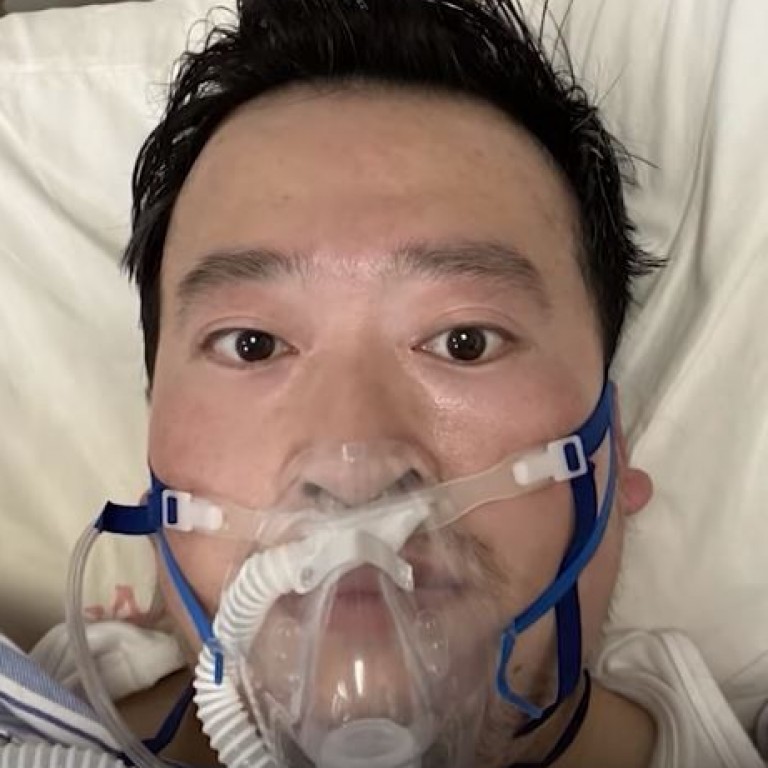China and US push back against whistleblowers amid COVID-19 fight

A few minutes every morning is all you need.
Stay up to date on the world's Headlines and Human Stories. It's fun, it's factual, it's fluff-free.
In China, the coronavirus outbreak peaked by the middle of February, with the number of active cases having dropped significantly since then. As of May 11, there are only 141 active cases in the country.
As a part of the Chinese government’s campaign to contain and slow the spread of the virus in the initial epicenter of Wuhan, a city in central China, a number of comprehensive containment methods – including lockdowns, quarantines, contact tracing, and mobilization of resources and infrastructure – has been utilized.
Another technique reportedly used by Chinese authorities to contain the outbreak – or at least to blunt any fears, rumors or criticism surrounding its spread – has been obfuscation and censorship.
When the outbreak first hit, reports surfaced that a Wuhan ophthalmologist, Dr. Li Wenliang, received severe pushback after he tried to sound the alarm in late December over what was at the time still a mystery illness.
In February, Dr. Wenliang died after contracting the coronavirus.

In late April it was reported that China had detained three individuals who’d allegedly kept an online database of articles that had been deemed sensitive by Chinese authorities. Reports suggest that among the articles maintained in the database were those about the coronavirus outbreak.
There has been growing skepticism in the United States and Europe about whether China was transparent enough during the virus’ early days. Others argue that China’s control over what information its citizens receive is in line with longstanding government policies and that global institutions were sufficiently warned of the virus ahead of time.
Warranted suspicion or domestic deflection?
According to a United States’ Department of Homeland Security report obtained by the Associated Press, the Communist Party of China covered up just how widespread the virus was in early January while quietly stockpiling medical equipment and supplies.
US Secretary of State Mike Pompeo has also suggested that there is “enormous evidence” that the virus came out of a laboratory in Wuhan. But according to scientists at the National Institute of Allergy and Infectious Diseases, a US government agency, there is no genetic evidence that indicates the virus was leaked from a lab.
State Secretary Pompeo Says Evidence Points to Covid-19 Originating in Wuhan Lab

Watch this video on YouTube
Chinese authorities have said that attempts to discredit their government’s response are “politically motivated” and only serve to divert attention and resources away from fighting the outbreak.
China informed the World Health Organization (WHO) about the mystery virus on December 31, 2019 and publicly identified the pathogen as a novel coronavirus on January 7.
The US Center for Disease Control and Prevention (CDC) started screening air passengers on direct and connecting flights from Wuhan in three major airports starting on January 17. On January 31, President Trump signed an executive order that limited travel from mainland China to lawful permanent residents and their families, one day after the WHO declared the coronavirus a “public health emergency of international concern.”
But reports indicate that Chinese President Xi Jinping did not warn the Chinese public of the virus until January 20, six days after officials initially suspected they were facing a pandemic.
US whistleblowers impacted
Government whistleblowers have also faced internal pressure in the United States.
According to Dr. Rick Bright, the former director of the US Biomedical Advanced Research and Development Authority, an arm of the US Department of Health and Human Services, the US failed to adequately prepare for the virus and instead focused on unsubstantiated quick fixes pushed by President Trump.
“I witnessed government leadership rushing blindly into a potentially dangerous situation by bringing in a non-FDA approved chloroquine from Pakistan and India, from facilities that had never been approved by the FDA,” Bright said. “Their eagerness to push blindly forward without sufficient data to put this drug into the hands of Americans was alarming to me and my fellow scientists.”
Dr. Bright was ousted as head of the agency on April 22. He claims he was moved to a different department due to his insistence that the agency invest its money in “safe and scientifically vetted solutions, and not in drugs, vaccines and other technologies that lack scientific merit.” President Trump has characterized Bright as “a disgruntled employee that’s trying to help the Democrats win an election."
The Office of Special Counsel, a federal watchdog agency, has found that there is “reasonable grounds to believe” that Bright was ousted in retaliation. He is expected to testify to a House panel regarding the subject on May 14.
International cooperation
During a European Union-led fundraiser that took place on May 4, world leaders came together to promote a spirit of global cooperation in the fight against the virus.
Representatives from 43 countries, which included China but not the United States, helped raise nearly 8 billion dollars in the fight against COVID-19.
The US decided to halt its funding to the WHO in April, with President Trump claiming it failed to do its “basic duty” in light of the outbreak.
During the fundraising event, United Kingdom’s Prime Minister Boris Johnson said that defeating the virus “is not a competition between countries, but the most urgent shared endeavor of our lifetimes,” while Japanese Prime Minister Shinzo Abe urged the world to “unite to overcome the crisis.”
Have a tip or story? Get in touch with our reporters at tips@themilsource.com
Sign up for daily news briefs from The Millennial Source here!




Comments ()